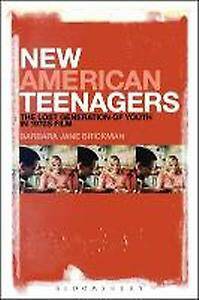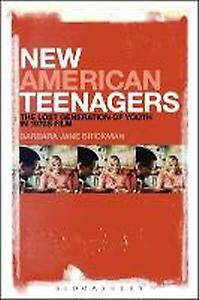
- Afhalen na 1 uur in een winkel met voorraad
- Gratis thuislevering in België vanaf € 30
- Ruim aanbod met 7 miljoen producten
- Afhalen na 1 uur in een winkel met voorraad
- Gratis thuislevering in België vanaf € 30
- Ruim aanbod met 7 miljoen producten
Zoeken
New American Teenagers
The Lost Generation of Youth in 1970s Film
Barbara Jane Brickman
Paperback | Engels
€ 72,95
+ 145 punten
Uitvoering
Omschrijving
Taking a closer look at teen film in the 1970s, New American Teenagers uncovers previously marginalized voices that rework the classically male, heterosexual American teenage story. While their parents' era defined the American teenager with the romantic male figure of James Dean, this generation of adolescents offers a dramatically altered picture of transformed gender dynamics, fluid and queered sexuality, and a chilling disregard for the authority of parent, or more specifically, patriarchal culture. Films like The Rocky Horror Picture Show, Halloween, and Badlands offer a reprieve from the 'straight' developmental narrative, including in the canon of study the changing definition of the American teenager. Barbara Brickman is the first to challenge the neglect of this decade in discussions of teen film by establishing the subversive potential and critical revision possible in the narratives of these new teenage voices, particularly in regards to changing notions of gender and sexuality.
Specificaties
Betrokkenen
- Auteur(s):
- Uitgeverij:
Inhoud
- Aantal bladzijden:
- 280
- Taal:
- Engels
Eigenschappen
- Productcode (EAN):
- 9781628922783
- Verschijningsdatum:
- 27/03/2014
- Uitvoering:
- Paperback
- Formaat:
- Trade paperback (VS)
- Afmetingen:
- 150 mm x 226 mm
- Gewicht:
- 430 g

Alleen bij Standaard Boekhandel
+ 145 punten op je klantenkaart van Standaard Boekhandel
Beoordelingen
We publiceren alleen reviews die voldoen aan de voorwaarden voor reviews. Bekijk onze voorwaarden voor reviews.








